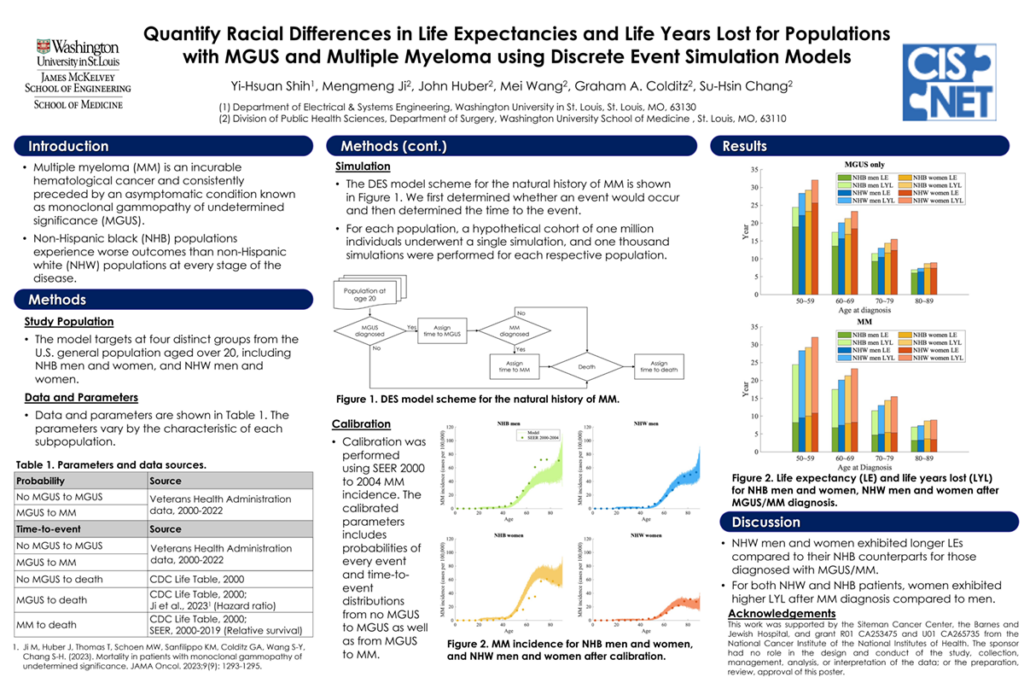
Introduction: Multiple myeloma (MM) is an incurable hematological cancer, preceded by an asymptomatic pre-malignant condition – monoclonal gammopathy of undetermined significance (MGUS). Racial disparities have been demonstrated in every stage of MM, with non-Hispanic black (NHB) populations experiencing worse outcomes compared to their non-Hispanic white (NHW) counterparts. To understand and quantify racial disparities, we constructed a discrete-event simulation model to study the natural history of MM in NHB and NHW men and women.
Methods: We used data from Centers for Disease Control and Prevention, National Health and Nutrition Examination Survey, Surveillance, Epidemiology, and End Results (SEER), and Veterans Health Administration (VHA) to estimate probabilities of disease-related events: MGUS, MM, and death as well as the distributions of the time to events. The models were further calibrated and validated using the SEER data. For each population, we performed microsimulation and computed age-specific incidence of MGUS/MM, life expectancy (LE), and life years lost (LYL) associated with MGUS/MM, defined as LE without MGUS/MM minus LE with MGUS/MM.
Results: For men, LE at the incidence of MGUS/MM was 11.5/6.0 years for the NHB population, compared to 13.2/7.0 years for their NHW counterparts, resulting in LYL of 4.8/9.8 years for the NHB population, compared to 5.0/11.1 years for their NHW counterparts. For women, LE at MGUS/MM was 11.5/6.2 years for the NHB population, compared to 11.8/6.7 years for their NHW counterparts, resulting in LYL of 4.6/8.9 years for the NHB population, compared to 4.8/9.1 years for their NHW counterparts.
Impact: The findings from this study provide valuable insights into the interplay between sex, race, and disease outcomes, and thus have the potential to set the goals for MM prevention and control strategies aimed at improving disease outcomes and reducing MM health disparities. Therefore, the findings have profound implication for promoting health equity, deterring disease progression, and improving outcomes among populations inflicted by MGUS and MM.
Organization: Washington University in St. Louis
Shih YH, Ji M, Huber J, Wang M, Colditz GA, Chang SH